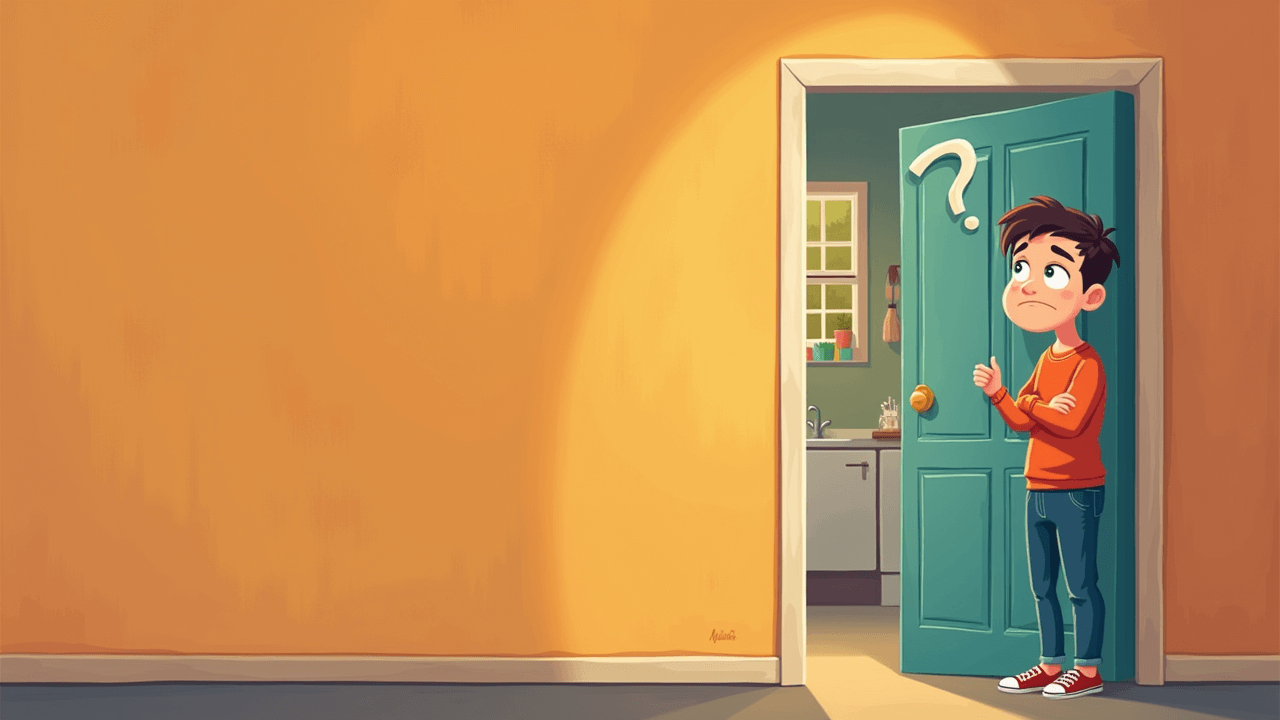Ever Wonder Why You Forget Things When Walking Through a Door?
Ever walk into a room and suddenly forget why you’re there? It’s like your brain just hit the reset button. This common phenomenon is known as the “doorway effect,” and it’s probably more familiar than you’d think. Let’s dive into the science behind it—why do we forget things when we walk through doors?
What Is the Doorway Effect?
The doorway effect happens when you walk from one room to another and suddenly forget why you entered the new room. It’s almost like our brains are creating these mental maps, linking memories to specific places. So, when you change environments, it can cause a temporary memory lapse. It’s as if your brain is switching to a different file folder, leaving the last one behind.
Sounds familiar, right? You’re not imagining it—your brain really is playing tricks on you. And what’s more fascinating is that this doesn’t just happen in the physical world; it can happen digitally too!
How Digital Doorways Affect Us
Have you ever been scrolling through your phone or switching between apps, only to forget what you were originally doing? It’s the same as the doorway effect but in the digital world. Think of each app, tab, or website as its own little “room.” Jumping between them creates those blank moments, similar to walking through a physical door.
Event Boundaries: The Science Behind It
So, why does this happen? It all comes down to something called “event boundaries.” These are moments where our brains segment different experiences. In physical spaces, the act of walking through a doorway can create a boundary in our minds, separating what we were doing before from what we’re doing next. But these boundaries aren’t exclusive to the physical world. Switching between websites or apps can trigger the same effect, creating those, “Wait, what was I doing?” moments.
How to Outsmart the Doorway Effect
Can we fight back against the doorway effect? Absolutely! A simple trick that many people find helpful is verbalizing your intentions. Saying your goal out loud, like “I need a snack,” before heading to the kitchen can help solidify the thought in your brain. It might sound simple, but speaking your intentions out loud engages more parts of your brain than just thinking the thought does. This makes it harder to forget what you were doing.
Does the Doorway Effect Get Worse with Age?
As we get older, it’s natural to wonder if these “senior moments” are part of aging. While some aspects of memory might not be as sharp, the doorway effect isn’t necessarily a sign of cognitive decline. In fact, factors like stress, lack of sleep, and multitasking can affect memory at any age. Our busy lifestyles can overload our brains, leading to those little memory lapses.
Designing Brain-Friendly Spaces
If we know our environment affects memory, then can we design spaces to work with our brains instead of against them? Imagine workspaces designed to minimize distractions or homes where everything has a specific place. This concept also extends to digital spaces. Websites and apps could be designed to reduce mental clutter and help users stay focused.
By being aware of how event boundaries affect us, we can take steps to reduce those annoying memory lapses. It’s like giving ourselves the tools to create more brain-friendly environments—both physically and digitally!
FAQs
What is the doorway effect?
The doorway effect is a memory phenomenon where people forget what they were doing or why they entered a room after walking through a doorway. It occurs because our brains create event boundaries, segmenting different experiences.
Why do we forget things when walking through a door?
When we walk through a doorway, our brain creates an event boundary. This transition can sometimes cause us to lose track of the previous task or intention, leading to a brief memory lapse.
Can the doorway effect happen in digital spaces?
Yes! The doorway effect can also happen when switching between apps, tabs, or websites. Just like in the physical world, moving between digital spaces can create event boundaries that lead to memory lapses.
Does the doorway effect get worse with age?
While age can affect some aspects of memory, factors like stress, lack of sleep, and multitasking can impact memory at any age. The doorway effect is not necessarily a sign of cognitive decline.
How can I prevent the doorway effect?
A simple trick is to verbalize your intentions before moving from one space to another. Saying your goal out loud helps engage more areas of your brain, making it less likely you’ll forget what you were doing.
Your Hosts

Alex & Maria
Join Alex Thompson and Maria Davis as they navigate the fascinating world of knowledge. With their combined expertise and passion for learning, they simplify the complex and make every episode a journey worth taking.

